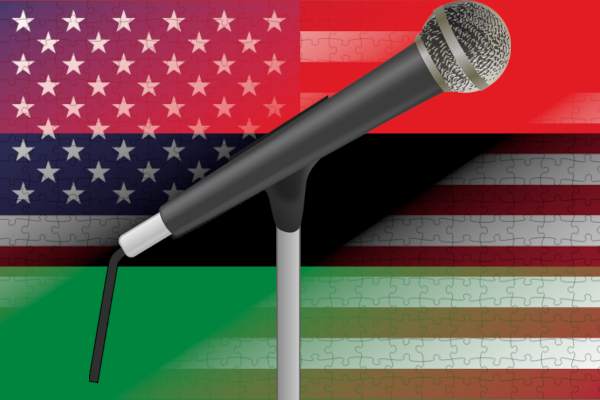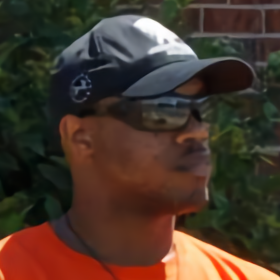Black Conscious Music is Getting More Respect, Less Mainstream Attention

I recently watched a YouTube video titled "Something weird is happening in hip-hop." I don't care enough to rewatch it to challenge my initial thoughts. All I remember was the author boasting about experimentation in music production and a comparison to the punk genre. I primarily want to explain my opinion to the clickbait-ish "Hip Hop is Dying" thumbnail message. TL/DR: many Black hip-hop/rap artists are returning to the roots - Black culture.
Recent Black History
I'm going to skip past the "Black Holocaust" of US slavery and related challenges like racial redlining which still affect Blacks today.
During the Obama USA era, white supremacists started showing themselves more. Ignorant people claimed that Obama's presidency proved that there's no more racism in the USA while police brutality instances on the news proved the opposite. During Trump's administration, it only picked up. NFL quarterback Colin Kaepernick took a knee to the National Anthem in August 2016, per recommendation from an Army Special Operations (SpecOps) soldier to still show respect (versus simply sitting as he did prior), to peacefully protest police brutality. People claimed that he was disrespecting military veterans, even after news reports sharing details about his conversation with the veteran. Then began the era of the Black Lives Matter (BLM) movement (not just the organization) amplified by George Floyd's murder in Minneapolis to harshly remind Black Americans that white supremacy has always been here, and arguably only gotten worse through the decades.
Branching out of the BLM movement came many other pro-Black efforts including:
- Discussions about accountability and responsibilities as Black Americans, parents, business owners, and overall ambassadors for the Black community
- Supporting Black-owned businesses
- Education about true Black history, particularly regarding systemic racism
- Reparations for Native Black Americans
- The return to Historically Black Colleges and Universities (HBCUs)
- Black Manosphere, Save Yourself Black Men (SYSBM), and Passport Bros
- #BankBlack
Black, African American, or...
You can find videos of Hip-Hop greats Rakim, KRS-One, and Nas explaining the difference between Hip-Hop and rap. I'm going to quickly echo something many Black folks have heard in the past. Blacks must do a better job at defining and defending ourselves as a people and our culture. We've called ourselves and allowed others to identify us as:
- Negros / Niggers / Niggas
- Colored
- Black Americans / African Americans / African Descent
- American Descendants of Slaves (ADOS)
- Foundational Black Americans (FBA)
- Descendant of Freedman
- People of color (PoC), a term that slight-of-hand lumps Blacks into the "minorities" category with Mexicans, Asians, gays, disabled people, etc.
What is Hip-Hop/Rap?
The notable example here is about the catch-all term "Hip-Hop/Rap." There are unique sub-genres - Christian rap, political/conscious rap, trap (which has since whitewashed from what it was when T.I. first went mainstream) - but "gangster rap" has maintained a stronghold in America since the beginning. Such music was once about dealing with everyday life in poverty, ghettos, 'hoods, and anti-Black racism, not glamorizing it. Since then, most marketed rap music is fetishizing the worst of our culture (dirty money, sex and lust, destructive drugs, and everything else except respect for our community and ourselves) and is deemed synonymous with the totality (not simply one part) of black folks music, black rap music, and us. Unfortunately, Blacks cannot directly control how white-controlled media uses doublespeak and language capture to synonymize:"
- "Gangster rap" with "black music," "rap music," and "Hip-Hop"
- "Urban" with "predominately black"
- "Woke" mockingly with anything other than "conscious," "third eye," simply understanding of self and what's really going on in the world
I prefer to say "conscious," "pro-black," or "Black first" (B1) instead of "woke" for this reason. You can't so easily manipulate the meaning of those terms.
Conscious Rap Music Has Always Existed
Going back to accountability, we worsen the problem when we produce, consume, or otherwise encourage art that encourages the destruction of our community. Even worse, most people do not put much effort into finding music with a positive, educational message. But that music gets minimal airtime because "they" want:
- Black Americans to remain fragmented and focused on trying to emulate studio gangster rappers
- Everyone to believe that black music and culture is devoid of anything valuable
KRS-One, Nas, and Common have been creating conscious, uplifting music for decades, yet they received minimal mainstream attention after their initial push. Yes, the same can be said for a most music artists (including relatively newer ones like Joyner Lucas). My point is that few MC's and songs encouraging Black excellence are given the spotlight in films, radio shows, and other mainstream media. The harsh truth is that white-owned businesses don't owe us that. However, we as Black Americans owe it to our families and communities to find and support artists who support Black empowerment and the nuclear Black family.
Is Hip-Hop Dying?
No, Hip-Hop isn't dying. Blacks determine popular or "pop" culture because we make things trendy, whites exploit it, and we as a collective support it financially and otherwise instead of sticking with our Black creators and Black-owned businesses. More Black artists are finding ways to assist Black communities while their new music releases with substance and pro-Black messages are largely ignored by anti-Black propaganda news and casual fans. Many Hip-Hop pioneers have not stopped not releasing music. Some may be dropping music underground via mixtapes. Many are simply under-respected, under-shared, and under-supported by us who benefit the most, just like Black-owned businesses which can provide jobs for Blacks.
I kept this in mind while curating a list of songs that I think every HBCU student should hear. I've found a lot of this music, and I want to ensure I do what I can to share it with brothers and sisters who want to be better for themselves and their children, but haven't made the time to find music to support that mindset. It would be great to know that 100% that money will go to the musician. But we can optimize what we have now while working toward such Afro-centric solutions.
Tags: black-community, music, music-production





